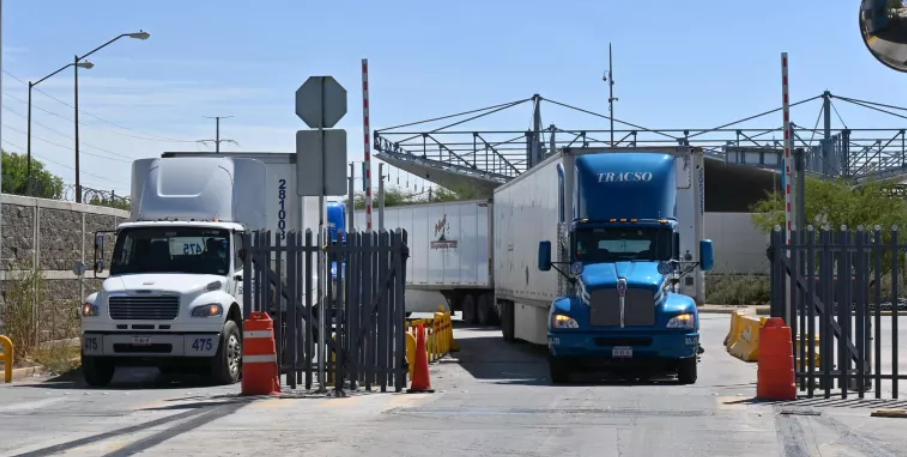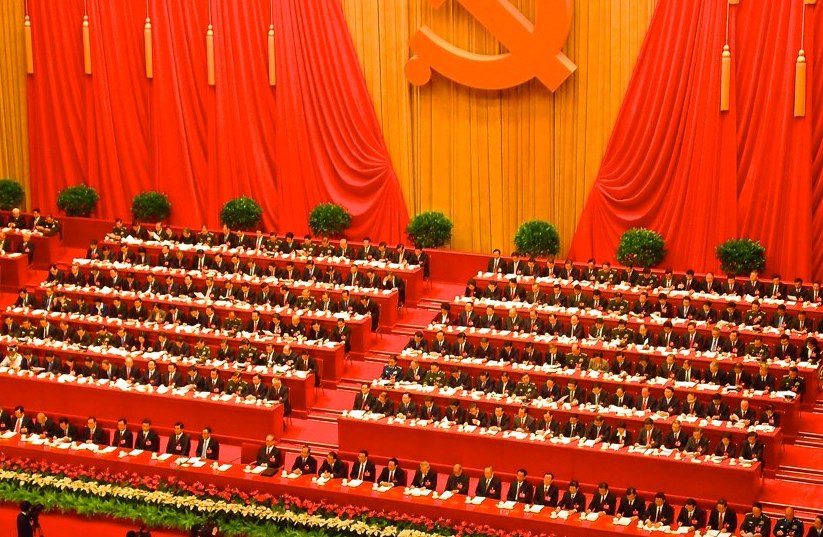This post is also available in: English Português
The U.S. Congress is considering the Americas Act, legislation that would expand current U.S. trade deals with Latin American countries and also provide incentives for businesses to “nearshore” operations to Latin America. The measure also aims to counter China’s “growing control over global manufacturing and geopolitics,” said the office of Rep. Maria Elvira Salazar (R-Fla.), one of the bill’s sponsors. What are the most important provisions of the Americas Act, and what impact would they have on the economies of the United States and Latin America if the legislation is approved? What are the measure’s chances for approval this election year, and what are the main forces and interests that will decide whether it becomes law? To what extent would it counter Chinese investment and influence in Latin America?
Chris Dodd, special presidential advisor for the Americas and former U.S. senator: “The administration welcomes bipartisan support for an affirmative economic agenda in Latin America and the Caribbean. By building on the work already underway in the Americas Partnership for Economic Prosperity, the bill sends an important message to our regional partners that the United States is committed to positioning ourselves as a reliable economic alternative to our strategic competitors. Irrespective of the election calendar, we will continue to engage with the bill’s sponsors to ensure the proposed measures and foreign policy tools therein align and support the administration’s regional economic strategy and specifically the Americas Partnership. In today’s political environment, where bipartisan agreement is rare, this shared vision for U.S. economic engagement in the Americas is significant and necessary to retain the United States’ position as the economic partner of choice for most of the countries in our hemisphere.”
Adrean Scheid, principal international policy advisor, and Christina Poehlitz, senior
international policy specialist, both at Arnold & Porter: “The United States urgently needs a bold and strategic vision for expanding engagement with Latin America and the Caribbean. The Americas Act presents an opportunity that, if implemented, would deepen trade and investment ties, advance economic integration and prosperity, strengthen competitiveness, improve enforcement of trade and related commitments, and counter China’s significant geopolitical and economic influence in the region. Building on the APEP program, the legislation creates a pathway for expansion of regional trade benefits—including through the USMCA—while also providing enhanced enforcement aimed at forced labor and other risks for countries willing and able to, meet the democracy, trade and rule of law requirements. The legislation also aims to counter China’s influence by better positioning U.S. engagement with regional partners as an alternative to China’s Belt and Road Initiative and motivating the U.S. private sector to redirect funding toward the region through re-shoring and near-shoring as they slow investments in China. Despite growing support from policymakers, regional allies and business groups, the path forward for the Americas Act to become law during the 118th Congress is unlikely. Introduction of the legislation, however, allows sponsors to test support, socialize language and legislative concepts, and develop budget and policy forecasts. Ultimately, advancing the legislation—or parts of the legislation—will require strong support from a significant number of members of Congress, particularly those on committees of jurisdiction and with regional or constituent interests, and it will need to mesh with executive branch interests across the region. It will also require strong private sector support.”
Mariano Machado, principal analyst for the Americas at Verisk Maplecroft: “The proposed Americas Act (S.3878) could represent the most thorough bipartisan attempt to deepen relations within the Western Hemisphere since the failed Free Trade Area of the Americas in 2003. But while the act could mark a return to Washington’s hemispheric-wide approaches, its blend of carrots and sticks recognizes the geopolitical shifts of the past two decades. On the incentives side, the act focuses on investment promotion, free trade and people-to-people cooperation. Key provisions would harmonize regional trade agreements, create economies of scale and reduce investment costs. The potential establishment of an adhesion mechanism to the USMCA is a salient feature, opening a path for partnership countries to become members. In terms of stipulations, membership requires a commitment to democratic principles, the rule of law and trade standards. Ineligible countries include those not complying with the Inter-American Democratic Charter or members of the ALBA Bolivarian alliance. This dual approach acknowledges that the region has become a decisive battleground in the struggle between the United States and China. Specific measures to counter outside influences include banning Beijing and Moscow from accessing privileges, as well as substantial loans and grants for re-shoring and near-shoring industries away from China. However, as precedent shows, compelling governments across the Americas to stop buttering their bread on both sides will take more than promises. Before that comes the challenge of approving the legislation in a high-stakes, polarized election year. Despite widespread support, chances of passing the act through the already logjammed 118th Congress are slim.”
Gary Clyde Hufbauer, senior fellow at the Peterson Institute for International Economics: “The Americas Act shows that several members of Congress, from both parties, are eager to challenge today’s reigning neo-protectionists—Presidents Biden and Trump, their acolytes Ambassadors Tai and Lighthizer, and fellow legislators. This is the act’s best feature. While it stands zero chance of passage this year, it points the way to more constructive U.S. trade and investment policies over the next five years. When the USMCA’s six-year review fully engages Washington, Mexico City and Ottawa in 2026, momentum behind the Americas Act could expand the tripartite pact to include Costa Rica, Uruguay and other Latin American countries that already have bilateral free trade agreements with the United States. That would substantially enlarge the scope for freer trade and investment within the Western Hemisphere. To improve chances of passage, authors of the Americas Act have added troublesome features designed to entice legislators who question freer trade and investment. The worst such feature is higher tariffs on imports from non-FTA countries—in other words, imports from countries other than the USMCA or some 18 other FTA partners. More than 140 non-FTA countries would thus be subject to ‘reciprocal tariffs’: whatever tariff the non-FTA country imposes on U.S. exports in a six-digit or eight-digit Harmonized Tariff Schedule code would be charged on U.S. imports from that country, regardless of U.S. commitments in its GATT schedule of bound tariffs. Peter Navarro, the original advocate of this abomination, might applaud destruction of the World Trade Organization resulting from ‘reciprocal tariffs,’ but it makes no sense to build hemispheric free trade on the ashes of the multilateral trading system.”
 The Latin America Advisor features Q&A from leaders in politics, economics, and finance every business day. It is available to members of the Dialogue’s Corporate Program and others by subscription.
The Latin America Advisor features Q&A from leaders in politics, economics, and finance every business day. It is available to members of the Dialogue’s Corporate Program and others by subscription.



